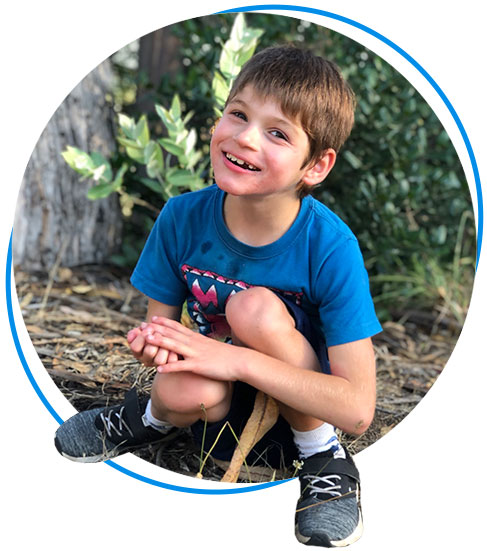
The goal of the FAST Search & Rescue initiative is to
FAST Search & Rescue aims to identify all individuals around the globe living with Angelman syndrome. This global initiative was set in motion by the Foundation for Angelman Syndrome Therapeutics. It is supported by dozens of international affiliates and a team of esteemed national and international clinicians and experts in diagnostics and genetics.
And we need your help.
Angelman syndrome (AS) is a rare neurogenetic single-gene disorder affecting a gene called UBE3A.
Angelman syndrome is non-degenerative, so individuals are expected to live a relatively normal length of life.
Most people diagnosed with it have no family history of the condition.
How many people have Angelman syndrome worldwide? Sadly, the answer is that we don’t really know.
This is why we are working very hard to find as many as we can.
However, literature has reported Angelman syndrome as common as 1:8,000 to as rare as 1:24,000. While many studies have attempted to estimate the prevalence of Angelman syndrome in different regions of the world and over different periods of time, they have arrived at a wide range of answers. As technology for diagnosis improves, the number of patients diagnosed increases. We are working to get the most accurate numbers and identify as many individuals as possible
If a person and their family do not have a diagnosis of Angelman syndrome, they may not be getting the medical support they need, and their caregivers may not be getting the community support they need. Additionally, if there are known groups of people with Angelman syndrome in certain regions of the world, they may be able to support clinical research and bring potential future treatments to those in their region.

When we know someone’s missing, we go looking for them. We mount a search and rescue operation across remote terrain or out at sea.
We are looking for everyone with Angelman syndrome. It doesn’t matter whether you are already part of the Angelman community, whether you are newly diagnosed or trying to find a diagnosis. We are trying to count everyone with Angelman so please join now.
The global Angelman syndrome community is invited to join this important initiative.

When a search and rescue team locates a missing person, they provide immediate support, which can be life saving.
FAST Search & Rescue will provide access to a broad range of resources and support currently unavailable to people without diagnosis.
That includes:
The FAST Search & Rescue initiative has partnered with the Global Angelman Syndrome Registry to collect data in a medical-grade secure location.
The Global Angelman Syndrome Registry is powered by the parents and caregivers of individuals diagnosed with Angelman syndrome.
The Registry facilitates collection of data in which families can answer questions on their experiences with diagnosis, medical history, behavior, development and more in a series of online modules. This invaluable resource is there to support research in Angelman syndrome.
*The population prevalence of AS is estimated at 1:12,000-1:24,000 [Mertz et al 2013].
Feasibility of Screening for Chromosome 15 Imprinting Disorders in 16 579 Newborns by Using a Novel Genomic Workflow [Godler et al 2022].